It's not just Intel vs. Microsoft! The most savage, disrespectful tech ads in recent months
The tech titans are at each other’s throats!
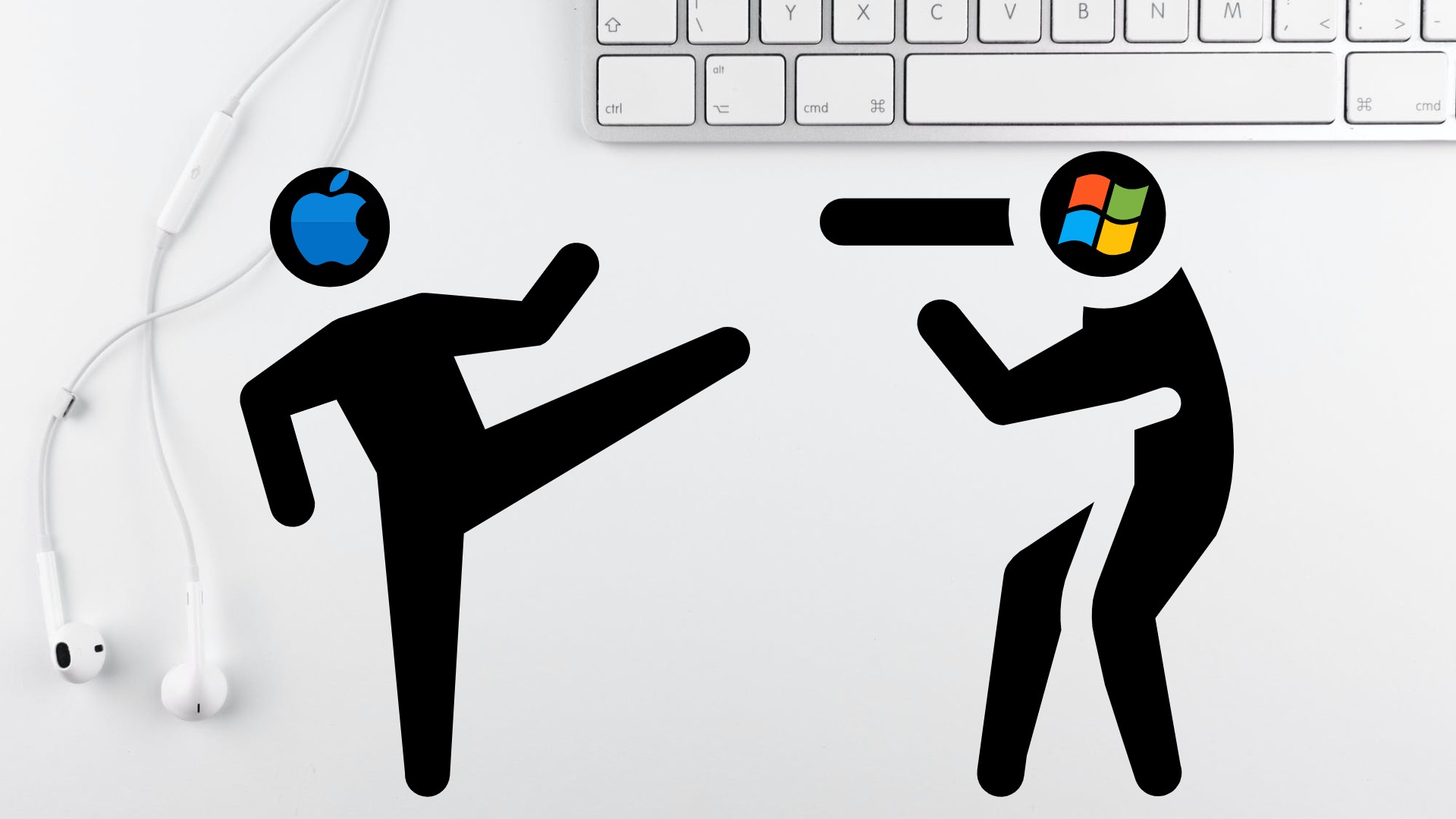
Sign up to receive The Snapshot, a free special dispatch from Laptop Mag, in your inbox.
You are now subscribed
Your newsletter sign-up was successful
Apple threw a grove of trees — forget shade — at Microsoft during its “Get a Mac” ad campaign that launched in 2006. Microsoft had to endure being trolled by the MacBook maker (who used actor Justin Long as a pawn) for being a dorky, out-of-touch, clumsy PC company that only excels — pun unintended — at making spreadsheet software.
In late March, Long reappeared on the laptop ad scene, but this time, he came back to disparage Apple in an Intel commercial. Traitor! Intel, perhaps suffering from a bad case of sour grapes after Apple ditched its CPUs, roasted M1-powered MacBooks to the pits of hell for being boring ol’ traditional clamshell laptops that can’t rotate like the Dell XPS 13 2-in-1 nor offer dual touchscreen displays like the Asus ZenBook Duo.
- Best laptops of 2021
- Intel fires shots at Apple by converting the 'I'm a Mac' guy
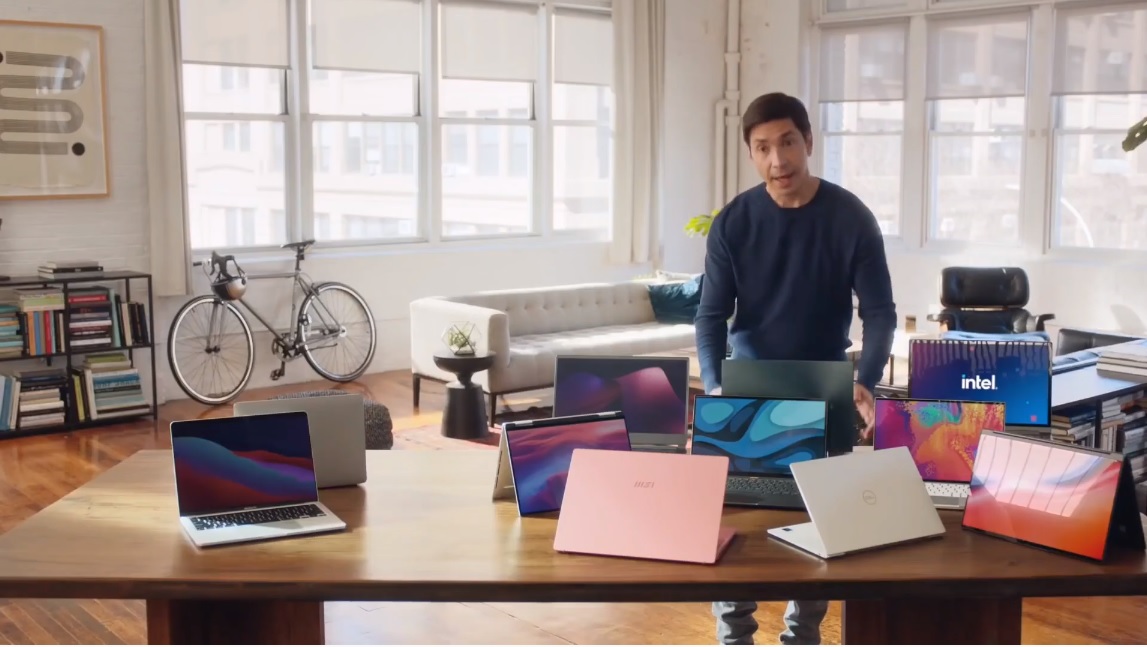
There’s more shade where that came from. The “I’ll use Justin Long against you!” tactic was brutal, but hold onto your hats. Like Intel and Apple, instead of launching neutral ad campaigns, many tech giants woke up and chose violence, unleashing savage marketing ploys against their most threatening rivals.
Let’s take a look at some of the shadiest ad campaigns in recent months that were so disrespectful, you’ll feel compelled to attend the victim’s funeral for being at the receiving end of such reputation-wounding burns. Ouch!
Mac vs. PC
After Intel chewed out Microsoft with its own human weapon (Justin Long), Microsoft also jumped on the anti-Apple bandwagon on March 24 with a 30-second commercial posted on Twitter. In the ad, a Microsoft Surface Pro device turns to a “BackBook” and asks, “Hey Bro! Can you do this?”
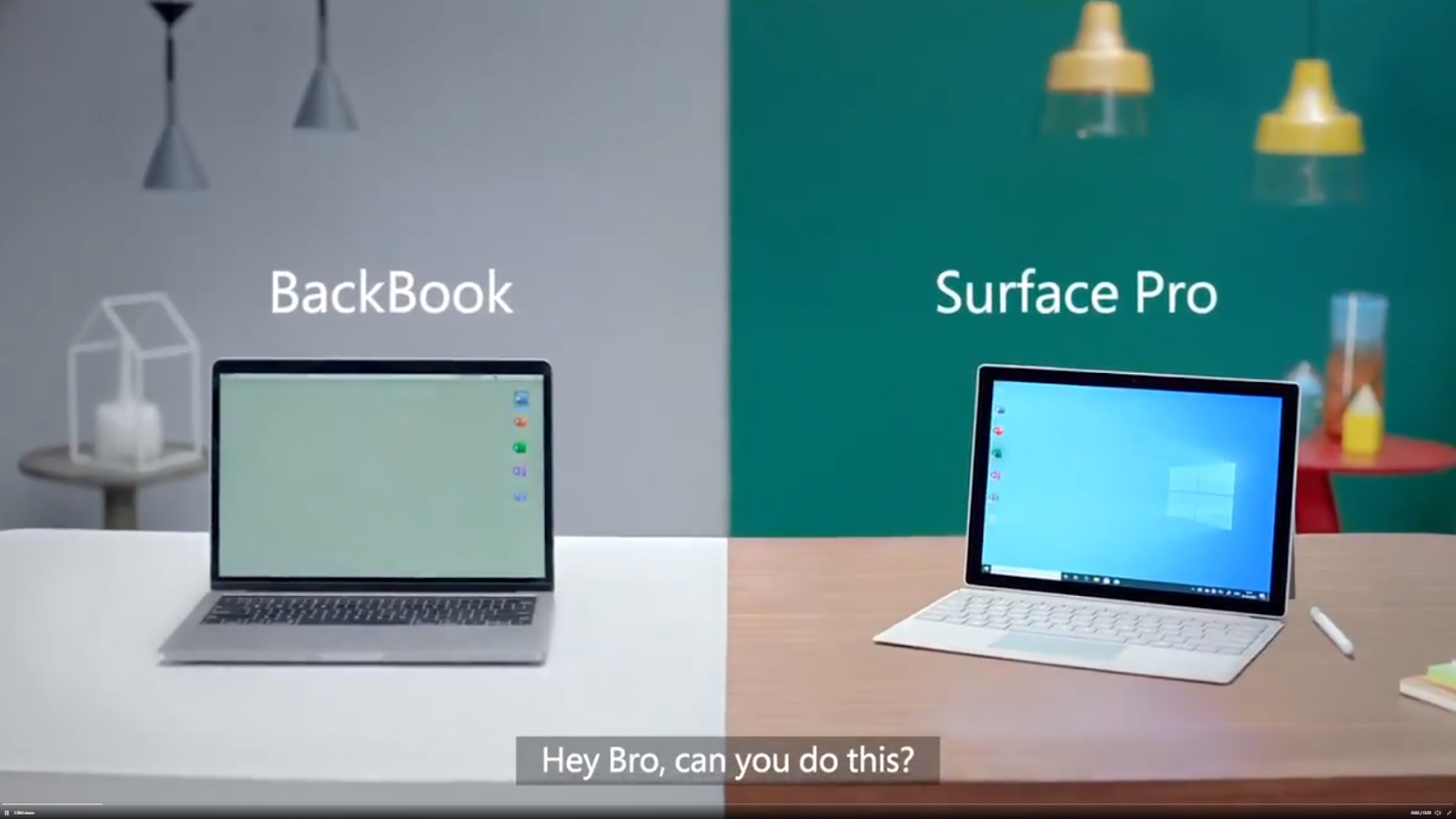
The Surface Pro then shows off its built-in kickstand, detachable keyboard and other 2-in-1 capabilities. After the Surface Pro parades its eye-catching features with a stylus to boot, it’s the BackBook’s turn to demonstrate its versatility — and well — it doesn’t do much but sit there in a stiff, clamshell position.
This wasn’t the first time Microsoft took shots at Apple this year. In early January, the Redmond-based tech giant hired a young actor to talk smack about the MacBook Pro in a half-minute Surface Pro 7 commercial. “The Surface comes with a pen and it is touchscreen. Mac gave me this little bar,” the young actor said, shading Apple’s Touch Bar strip, “but why can’t they just give me a whole touchscreen?”
Sign up to receive The Snapshot, a free special dispatch from Laptop Mag, in your inbox.
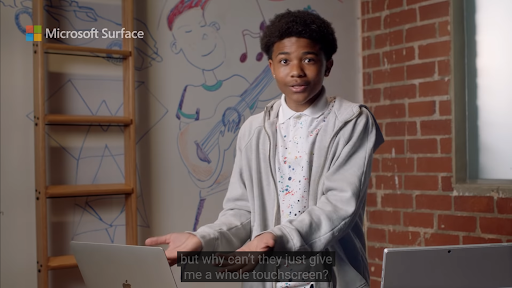
I have no dog in this fight (like Justin Long, I have no brand loyalty), but Intel and Microsoft’s consistent focus on gimmicks like clamshell-to-tablet transformations are unconvincing selling points. It’s nice that it can transition into tent mode, but how well does it perform? Can it handle my avalanche of tabs on Google Chrome? What’s the battery life lookin’ like? Someone’s got to ask the real questions.
Samsung Galaxy vs. iPhone
Apple — Samsung’s greatest enemy in the smartphone market — introduced the iPhone 12 line last October. The company had the whole internet up in arms when it announced that it would not be shipping its new-generation devices with chargers because they are — get this — “concerned about the environment.” I’m not going to delve into whether I believe them or not (hint: I don’t), but the declaration knocked many off their feet. Apple also disappointed the masses after revealing that all four phones lacked high refresh-rate displays.
The same day the iPhone 12 was announced, Samsung published shady, anti-Apple ads on Twitter and Facebook stating, “Your #Galaxy does give you what you are looking for. From the most basic as a charger, to the best camera, battery, performance and even 120Hz screen on a smartphone.”
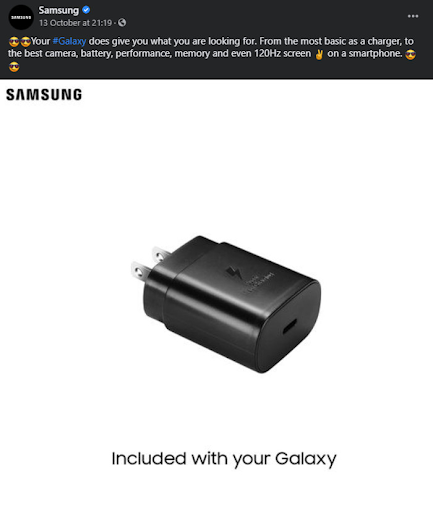
Under the caption, Samsung uploaded a picture of the charger that accompanies its flagship handsets, allowing the public to drool over the taken-for-granted power adapter that Apple snatched away from its iPhone boxes. Beijing-based smartphone brand Xiaomi also trolled Apple with a similar ad.
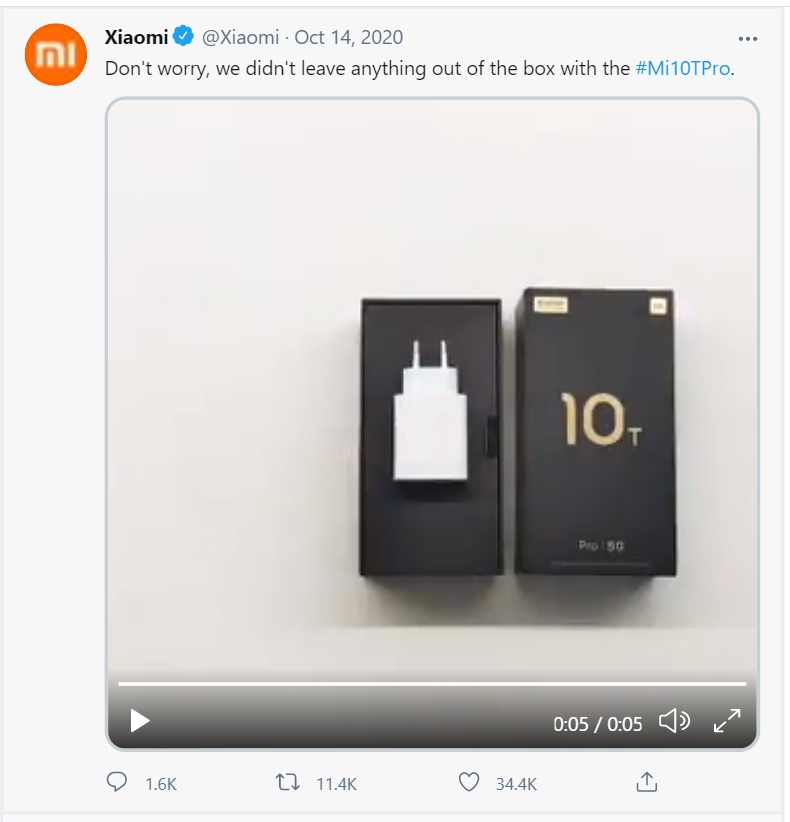
However, as they always say, your haters are your biggest admirers. There’s scuttlebutt that Samsung is planning on “saving the environment,” too. In late December, the company was caught red-handed deleting its cheeky ads from all of its social media platforms, adding fuel to the rumors that Samsung plans on ditching its power adapters as well. If this is true, how embarrassing for Samsung. Don’t tweet if you plan to repeat!
Samsung also threw subtle shade at Apple last November. In a commercial for the Galaxy Z Fold 2, a hooded figure spots a poster for the phone that says, “Think Different” — Apple’s 1997 to 2002 ad slogan.
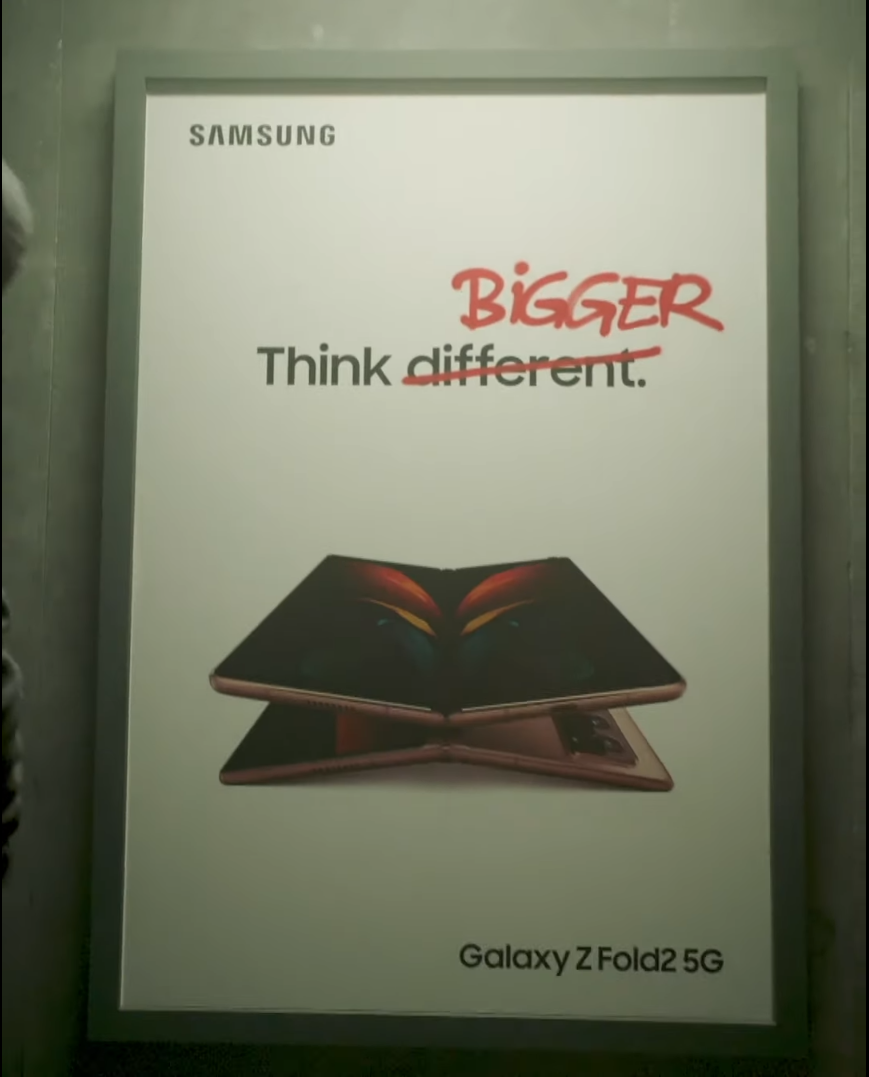
The hooded figure whips out a can of red spray paint, crosses out the word “different” and writes “bigger,” low-key criticizing Apple for being a narrow-minded company that can’t compete with Samsung’s grandiose smartphone concepts.
Xbox Series X vs. PS5
With the emergence of two next-generation consoles last year — the Xbox Series X and PS5 — Microsoft knew that it would be battling a tough competitor with Sony as its rival. As such, Microsoft watched Sony like a hawk, waiting for the right time to strike. Almost every time Sony had a snafu, Microsoft jumped at the opportunity to stomp on the PS5 while elevating the Series X — and it was profoundly entertaining.
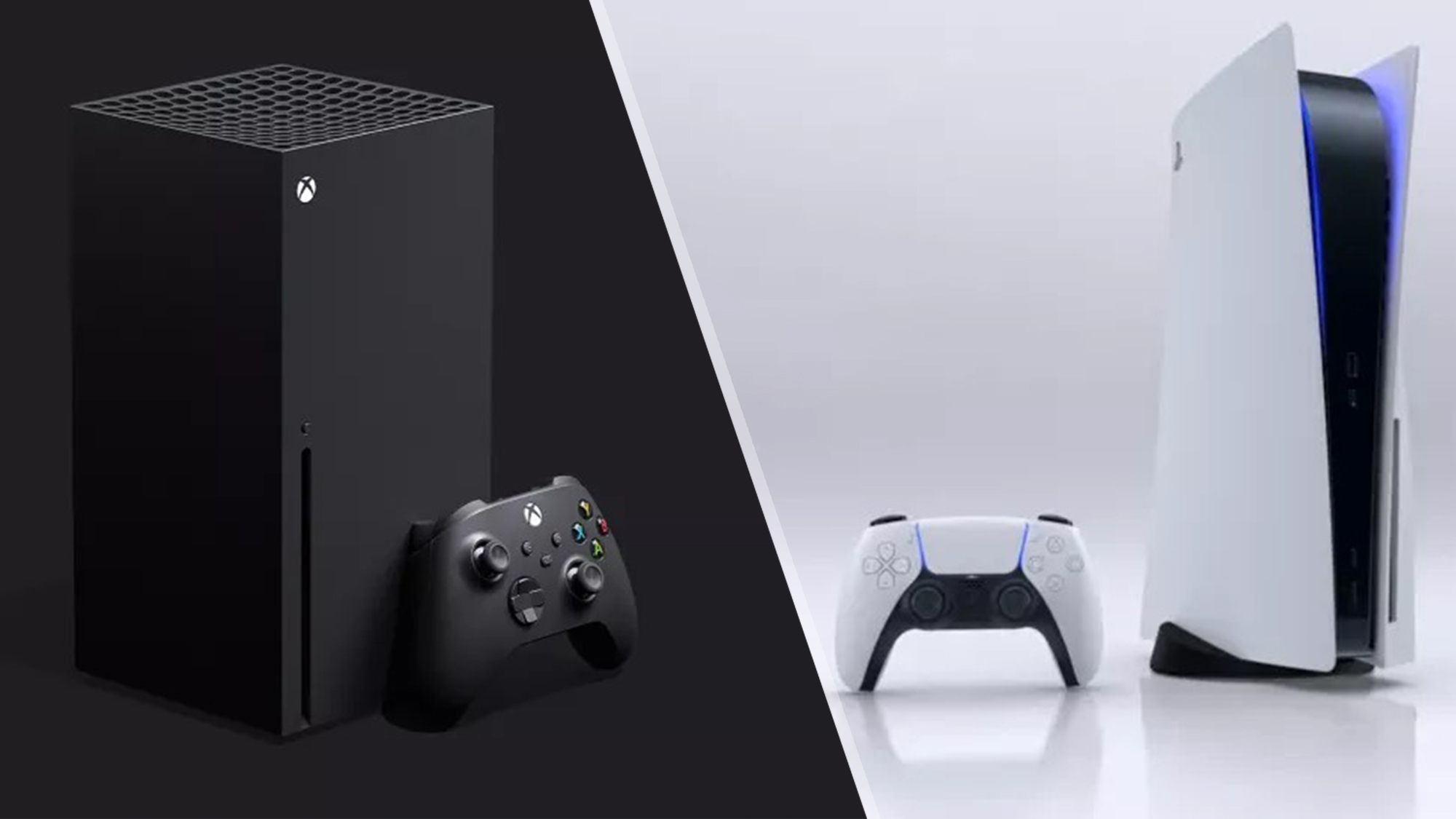
Last September, fans were frustrated with Sony’s next-gen upgrade approach, especially when the company confirmed that owners of PS4’s Marvel Spider-Man game wouldn’t get a free PS5 upgrade for the remastered version. Microsoft’s Smart Delivery feature, on the other hand, promises that all first-party games purchased on Xbox One come with a Series X upgrade. With Sony offering upgrade deals on a case-by-case basis, Microsoft couldn’t wait to taunt the company.
Xbox UK tweeted, “Here’s a thread on how you can upgrade games to the Xbox Series X” as if it was poised to dive into a series of step-by-step instructions to its 900,000 followers. Instead, Microsoft closed the thread with a funny meme of Leonardo DiCaprio guffawing like an uppity snob with the following statement: “Just buy the game!”

Microsoft also came for blood after Sony posted a PS5 teardown video last October.
Yasuhiro Ootori, Sony’s Vice President of Mechanical Design, took nearly a minute to rotate the PS5 from its vertical posture to a horizontal position because he had to attach the backplate to a specific spot on the console and screw it in. Xbox UK couldn’t help but take a sly dig at Sony with the following tweet.
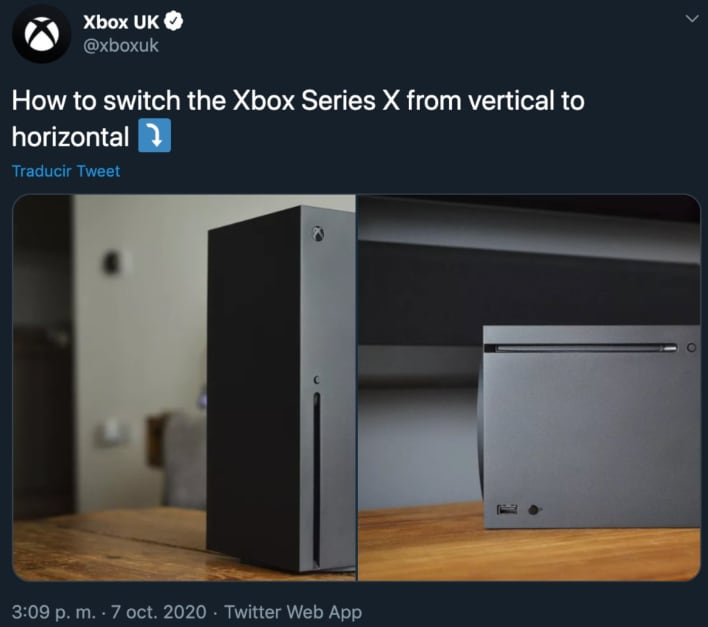
Sony decided to take more of a turn-the-other-cheek (i.e. boring) strategy while Microsoft dragged the PS5 through the mud during the height of the next-gen console pandemonium. Such a shame! A tit-for-tat of wit between Microsoft and Sony would have been epic. Maybe Sony knew it had no chance against the most powerful gaming console in the world — the Series X would crush the PS5 based on specs alone. On the other hand, perhaps Sony’s quiet and mellow approach was a good idea. The one-sidedness made Microsoft seem like a big, bad bully.
Fortnite vs. Apple App Store
I have no choice but to stan Epic Games, the creator of Fortnite. While most companies tiptoe around Apple — too afraid to shake things up with arguably the most powerful tech brand in the world — Epic Games said, “Not today, Satan!”
Fed up with Apple’s 30% cut on in-app purchases, Epic Games tried to circumvent the fee. Apple retaliated by removing Fortnite from its app store. Epic Games responded by slapping Apple with a lawsuit, accusing the Cupertino-based tech giant of anti-competitive behavior. Here’s where it gets juicy! Epic Games launched an epic #FreeFortnite campaign alongside a damning ad that paints Apple as an iron-fisted oppressor that hypnotizes the masses into sheep-like behavior and conformity.
The spectacular advertisement parodied Apple’s iconic ‘83 commercial that was influenced by one of my favorite books of all time: 1984. In the ad, a non-conforming Fortnite character charges toward a massive TV with a talking apple (representing the iPhone maker, of course) that has the crowd under a spell. She hurls her unicorn-shaped sledgehammer into the TV, smashes it and frees the other Fortnite characters from the apple’s evil enchantment.
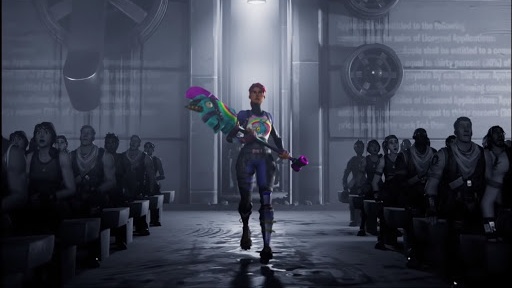
“Epic Games has defied the App Store Monopoly. In retaliation, Apple is blocking Fortnite from a billion devices. Join the fight to stop 2020 from becoming ‘1984,’” the ad declared.
Considering the ad’s reach, its powerful message and the conversation-stimulating debates it’s caused on social media platforms, Epic Games wins the crown for putting out one of the most savage, disrespectful advertisements in recent times.
Bottom line
I’ll admit that I live for petty tech rivalry. Watching big brands come at each other’s necks is like watching two nuns scuffle on the playground — they’re expected to keep their composure and set a good example for others, but here they are fighting like Godzilla vs. Kong for the world to see.
It’s also fascinating to observe which marketing strategies tech companies adopt. Some prefer to use memes and juxtaposition to tear their opponents apart, but more often than not, big-name brands use the “I’ll use your former ad campaign against you” technique that tickles my funny bone.
There seems to be a winning formula for running a successful “diss” campaign; it’s got to be shady, witty, humorous, and most importantly, honest. Without the latter, companies will find themselves being dragged on their own social-media ad posts (ahem, Microsoft). The year is still young and I can’t wait to see more tech rivalries play out in 2021.
Kimberly Gedeon, holding a Master's degree in International Journalism, launched her career as a journalist for MadameNoire's business beat in 2013. She loved translating stuffy stories about the economy, personal finance and investing into digestible, easy-to-understand, entertaining stories for young women of color. During her time on the business beat, she discovered her passion for tech as she dove into articles about tech entrepreneurship, the Consumer Electronics Show (CES) and the latest tablets. After eight years of freelancing, dabbling in a myriad of beats, she's finally found a home at Laptop Mag that accepts her as the crypto-addicted, virtual reality-loving, investing-focused, tech-fascinated nerd she is. Woot!

